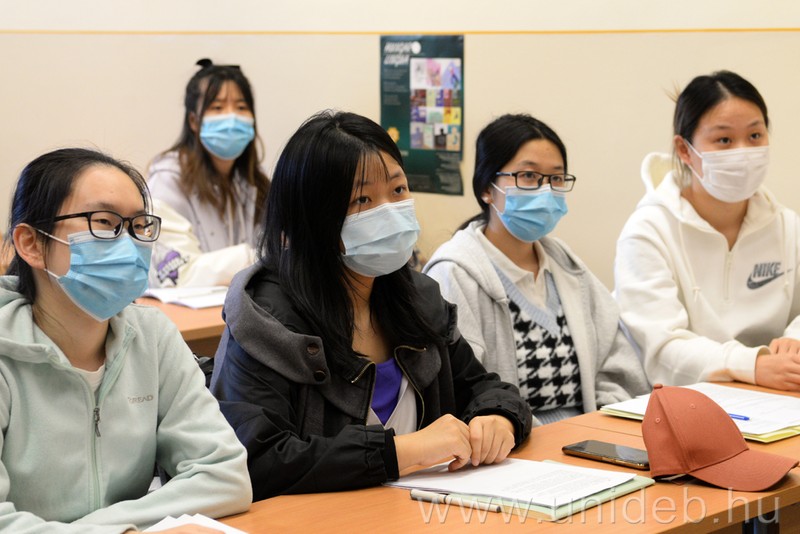Approaching the diploma, the 12 Chinese students who started their studies in Hungarian three years ago at the University of Debrecen, Faculty of Humanities, are writing their dissertations.
The history dates back to 2015 when Beijing International Studies University (BISU) launched a seven-year program: 20 high school students began a special seven-year course in which they would learn Hungarian as a high school students in three years. later they can pursue university studies in Hungary.
BISU contacted the University of Debrecen (DE) and the Summer University of Debrecen (DNyE) with the assistance of the Hungarian Cultural Institute in Beijing. The head of the latter, Péter Szaffkó, visited the University of China in May 2016, where the students could start the program with the help of Hungarian lecturers, working out the basics of joint training.
– In cooperation with the various units of the DE – the Center for the Coordination of International Education, the Faculty of Humanities (BTK), the Hungarian Institute of Linguistics – 20 Chinese students arrived in Debrecen in September 2017 as part of a one-year Hungarian language and culture course. Most of the classes were conducted by the teachers of DNyE, but there was also a continuous professional consultation with the staff of the Hungarian Institute of Linguistics in order to properly prepare the students for admission to the Hungarian BA a year later, Péter Szaffkó told the hirek.unideb.hu portal, Director of the Debrecen Summer University.
The students of BISU took part in the written and oral entrance exam, and those who passed the Hungarian basic course were finally admitted.
12 Chinese students are currently studying at the Faculty of Arts of the University of Debrecen in the third year and 16 in the second year.
– We tried to fill the subjects of the course with such content that we can pass on the most useful knowledge to the students in order to learn the Hungarian language as accurately as possible, acquire cultural knowledge, and to improve communication. In addition to the transfer of professional knowledge, our primary goal is to develop the most accurate knowledge of the Hungarian language system, and to get a nuanced picture of the language itself and the culture of the Hungarian people through the content of literary and linguistic subjects – informed Edit Dobi, BTK Hungarian Institute of Linguistics Associate Professor, the Hungarian professional coordinator of the program.
The teaching is attended by lecturers and doctoral students of the Hungarian Institute of Literary and Cultural Studies of the Hungarian Academy of Sciences and the Hungarian Institute of Linguistics, for whom this work is a real challenge.
– This is partly due to the difference between Asian and European culture and partly due to the very limited knowledge of our instructors about China. That is why we have great respect for Chinese students, as they are constantly witnessing extraordinary openness, diligence, and perseverance. They were committed to Hungarian and European culture as teenagers, they learned the language, they try to get to know our history and culture, our literature – Gergely Fazakas emphasized.
The director of the Hungarian Institute of Literary and Cultural Studies of DE BTK emphasized that in addition to the transmission of Hungarian and European culture, the common interpretation of the texts and their historical and cultural history, the presentation of the most important works of fine arts, cinema and contemporary culture during.
Towards the end of the bachelor’s degree, the dissertations are already being prepared – in Hungarian, of course. One of them tries to write about the character of Achilles by reading Iliad Homer in translations, while others deal with Dante’s Divine Play, the fables of Gáspár Heltai, or Balassi’s love poems. There are also students who are interested in the unfolding Hungarian literary institutional system of the Enlightenment, or Ady’s symbolism. More people write about contemporary children’s and youth literature, film adaptations of novels, and issues of digital media.
After graduating, there are expected to be some who are considering applying to the Master’s program in Hungarian Literature and Linguistics at the University of Debrecen.
hirek.unideb.hu


















